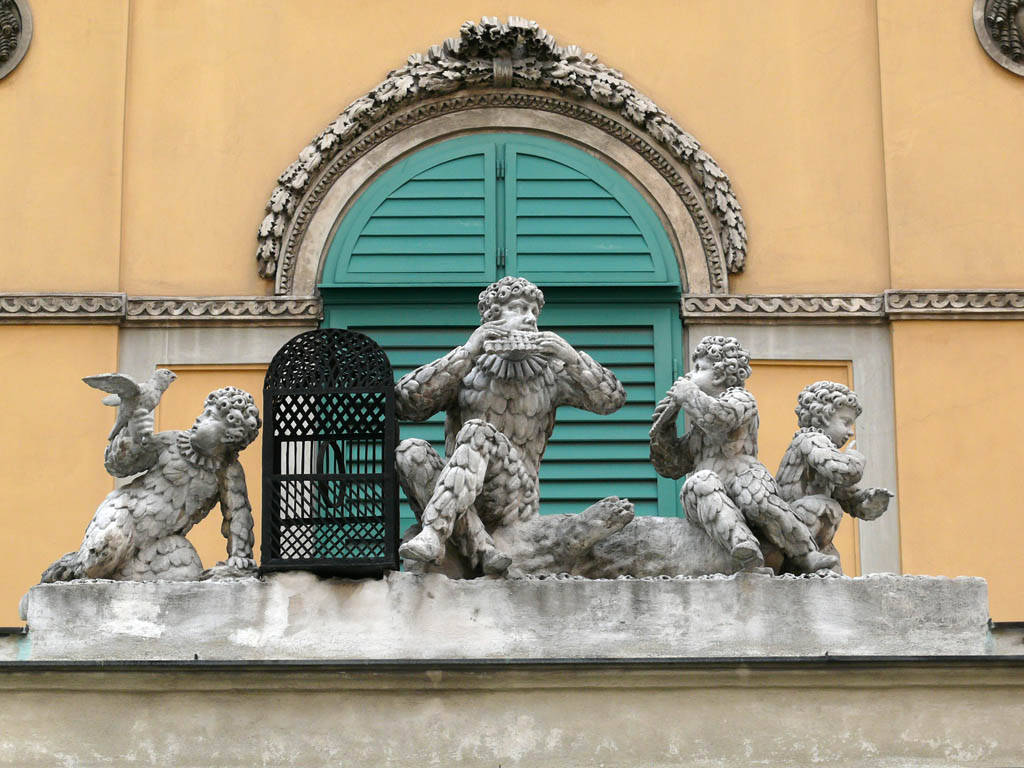Emanuel Schikaneder
(From Wikipedia, the free encyclopedia)
The Magic Flute
The series of fairy-tale operas at the Theater auf der Wieden culminated in the September 1791 premiere of The Magic Flute, with music by Mozart. The libretto is usually considered to have been written by Schikaneder, although Schikaneder’s playwright Karl Ludwig Giesecke claimed to have written it. Schikaneder partly based the libretto on several earlier plays, particularly Oberon by Sophie Seyler, which had been plagiarized by Giesecke for Schikaneder’s troupe two years earlier and which established the company’s tradition of fairy tale operas.[24] The opera incorporated a loose mixture of Masonic elements and traditional fairy-tale themes. Schikaneder took the role of Papageno—a character reflecting the Hanswurst tradition, and thus suited to his skills—at the premiere.
According to the dramatist Ignaz Franz Castelli, Schikaneder also may have given advice to Mozart concerning the musical setting of his libretto:
The late bass singer Sebastian Mayer told me that Mozart had originally written the duet where Papageno and Papagena first see each other quite differently from the way in which we now hear it. Both originally cried out „Papageno!“, „Papagena!“ a few times in amazement. But when Schikaneder heard this, he called down into the orchestra, „Hey, Mozart! That’s no good, the music must express greater astonishment. They must both stare dumbly at each other, then Papageno must begin to stammer: ‚Pa-papapa-pa-pa‘; Papagena must repeat that until both of them finally get the whole name out. Mozart followed the advice, and in this form the duet always had to be repeated.“
Castelli adds that the March of the Priests which opens the second act was also a suggestion of Schikaneder’s, added to the opera at the last minute by Mozart. These stories are not accepted as necessarily true by all musicologists.
The Magic Flute was a great success at its premiere, frequently selling out and receiving over a hundred performances at the Theater auf der Wieden during its first few months of performance. Schikaneder continued to produce the opera at intervals for the rest of his career in Vienna.
Mozart died only a few weeks after the premiere, on 5 December 1791. Schikaneder was distraught at the news and felt the loss sharply. He evidently put on a benefit performance of The Magic Flute for Mozart’s widow Constanze, who at the time faced a difficult financial situation. When his troupe mounted a concert performance of Mozart’s La clemenza di Tito in 1798, he wrote in the program:
„Mozart’s work is beyond all praise. One feels only too keenly, on hearing this or any other of his music, what the Art has lost in him.“

